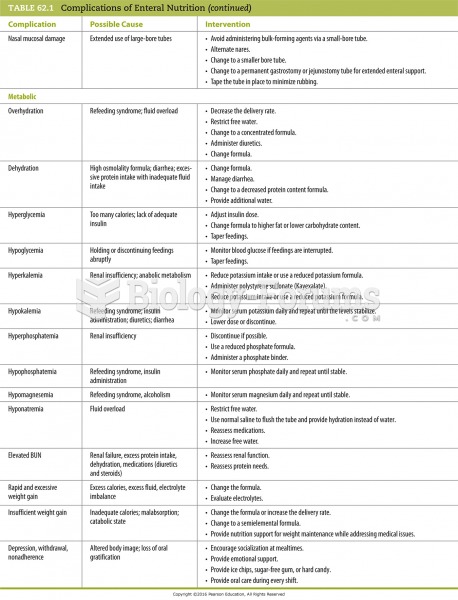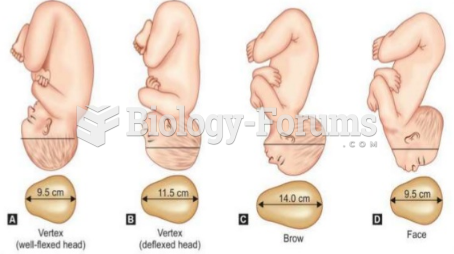|
|
|
Human stomach acid is strong enough to dissolve small pieces of metal such as razor blades or staples.
The familiar sounds of your heart are made by the heart's valves as they open and close.
As many as 28% of hospitalized patients requiring mechanical ventilators to help them breathe (for more than 48 hours) will develop ventilator-associated pneumonia. Current therapy involves intravenous antibiotics, but new antibiotics that can be inhaled (and more directly treat the infection) are being developed.
When blood is exposed to air, it clots. Heparin allows the blood to come in direct contact with air without clotting.
About 3.2 billion people, nearly half the world population, are at risk for malaria. In 2015, there are about 214 million malaria cases and an estimated 438,000 malaria deaths.







